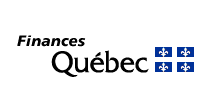|
|
 |
 |
 |
Own-source
revenue

Own-source
revenue should decline by 4.9% in 2001-2002 compared with
the preceding year, the most substantial decreases being recorded
with regard to personal income tax, corporate tax and revenue
from government enterprises. In 2002-2003 and 2003-2004, own-source
revenue should grow by 5.5% and 5% respectively, with each
source, notably government enterprises, contributing to the
increase.
Own-source
revenue as a proportion of gross domestic product, including
consolidated organizations, peaked at 19.7% in 1999-2000.
Given the tax reductions announced, the ratio should decline
to 18.5% in 2003-2004.
Revenue
by source:
- Personal
income tax, the main source of government revenue, should
decrease by 8.1% in 2001-2002 to $15.7 billion. During this
fiscal year, the impact of the tax reductions announced
in recent budgets will exceed the increase in tax revenue
arising from the growth in income subject to tax. In 2002-2003,
growth will be limited to 3.9% as the full impact of these
tax reductions is felt. In 2003-2004, the growth rate will
reach 5.9%, which, given the progressive nature of the taxation
system, is compatible with the increase in income subject
to tax.
- Health
Services Fund contributions should amount to $4.4 billion
in 2001-2002, slightly less than the preceding year. The
increase stemming from the growth in wages and salaries
is entirely offset by the impact of the tax holiday granted
in the 2001-2002 Budget to manufacturing enterprises in
resource regions and to the reduction in the contribution
rate of small and medium-sized enterprises effective since
January 1, 2001. This reduction is the last of the gradual
reductions introduced as part of the corporate taxation
reform announced in the 1998-1999 Budget. By the end of
the reductions, the growth rate of this revenue should be
comparable to that of wages and salaries over a fiscal year,
i.e. 3.8% in 2002-2003 and 4.1% in 2003-2004.
- The
4.8% decrease in revenue expected from corporate taxes in
2001-2002 is due to the anticipated decline in corporate
profits and the measure announced in the 2002-2003 Budget
to improve the liquidity of small and medium-sized enterprises.
Such enterprises were able to defer for six months the instalments
of income tax and tax on capital that they were supposed
to pay in the last quarter of 2001, thereby reducing revenue
for 2001-2002 but increasing it accordingly in 2002-2003,
which explains the anticipated increase of 8.3% in the course
of this year. The non-recurrence of these amounts in 2003-2004
will reduce the growth in revenue and thus cancel out the
positive effects of the increase in corporate profits in
2003.
- Consumption
tax revenue should rise by 5.2% in 2001-2002, reflecting,
among other things, the tobacco tax increase that took effect
last April 5 and the tobacco tax increase announced in last
November's Budget. The anticipated growth rate of 4.1% in
2002-2003 is comparable to that of household consumption
when the full impact of the additional increase in the tobacco
tax is taken into account. In 2003-2004, consumption tax
revenue will grow at the same rate as household consumption,
i.e. 4.2%.
- Revenue
from government enterprises should increase by 22% in 2002-2003
and by 11.9% in 2003-2004 because of the improvement in
the financial situation of government corporations as a
whole.
|


